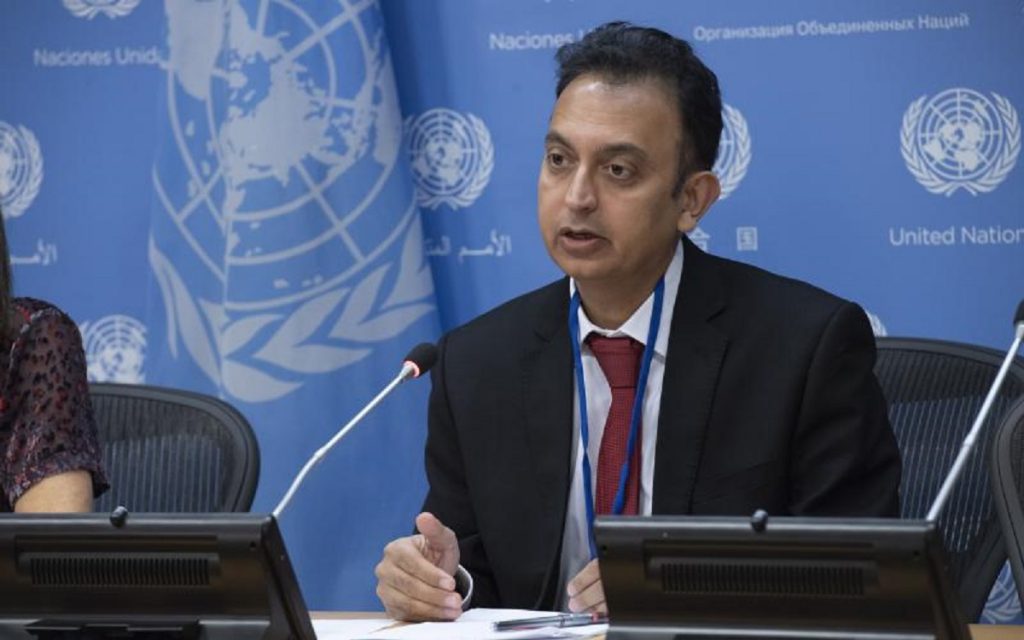In his latest report to the United Nations Human Rights Council, dated 13 January 2022, Dr. Javaid Rehman, the UN Special Rapporteur on the situation of human rights in the Islamic Republic of Iran, urged the international community to call for accountability over the 1988 massacre of political prisoners in Iran.
The report A/HRC/49/75, titled ‘Situation of human rights in the Islamic Republic of Iran’, was made available on the UN website on 9 February 2022.
In paragraph 59, the Special Rapporteur highlighted emblematic examples of the failure of Iran’s authorities to ensure accountability:
“The Special Rapporteur, other human rights mechanisms and civil society have, over the years, documented examples of grave violations of human rights. These include the large-scale use of lethal force by security, law enforcement and other State agents against peaceful protesters in nationwide protests in 2009, 2019, 2020 and 2021, leading to alarmingly high numbers of injuries and deaths, together with arrests, enforced disappearances, detentions, prosecutions and executions. Other examples include large-scale enforced disappearances and summary executions of real or perceived political dissidents, including children, in 1982 and 1988, which to date have not been the subject of any investigation or accountability, but where destruction of evidence for those crimes is ongoing, in what appears to be an official State policy of wiping these events from memory.”
Elsewhere, in paragraph 64 of his report, the Special Rapporteur draws attention to the culture of impunity and the risk of reprisals in Iran:
“The system of governance and the corresponding absence of a system of accountability has created a culture of impunity that perpetuates the cycles of violence, since violations of human rights have no consequences for the State or for individual perpetrators. There appears to be a State policy of intimidating, prosecuting or silencing those who call for accountability, justice and truth, whether they are victims themselves, relatives, human rights defenders, lawyers or organizations. Emblematic examples are the imprisonment of Maryam Monfared for seeking truth and justice for her relatives who were forcibly disappeared and executed in 1988; threats and harassment against individuals seeking accountability for the loss of their family members following the downing of Ukraine Airlines flight PS752; and attacks against and arrests of family members seeking accountability for their children killed in protests or in prison, such as the arrest and imprisonment of Manouchehr Bakhtiari, the father of a protester killed in the November 2019 protests.”
In the recommendations section of the report, the Special Rapporteur makes a final appeal to the international community to seek justice over the 1988 massacre:
“71. The Special Rapporteur urges the international community to call for accountability with respect to long-standing emblematic events that have been met with persistent impunity, including the enforced disappearances and summary and arbitrary executions of 1988 and the November 2019 protests.”
The Human Rights Council is expected to discuss the Special Rapporteur’s report during an Interactive Dialogue with the rapporteur on Iran scheduled for 17 March 2022 at its 49th regular session.
On 25 January 2022, JVMI and more than 460 current and former UN officials, human rights and legal experts and NGOs, sent a joint letter to the Human Rights Council, with a copy to the UN High Commissioner for Human Rights, seeking an international inquiry into the 1988 mass extrajudicial executions and enforced disappearances.
Click here for the full text of the Special Rapporteur’s latest report on Iran

